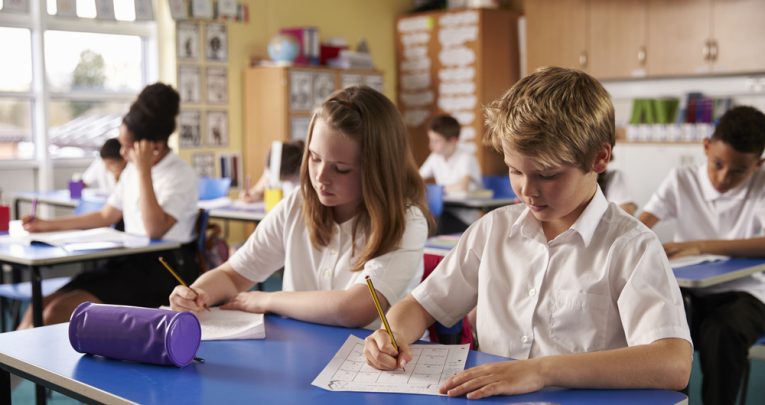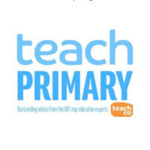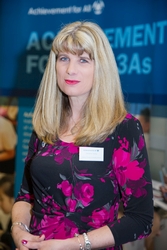Must Try Harder? – Primary School Reports And How To Fix Them

Are primary schools doing enough to communicate pupils' progress to their parents, or could improvements be made? Three headteachers share their views…

- by Teach Primary
- Leading professional development magazine for KS1 and KS2 educators

The primary school report is a longstanding tradition – but is it time to try something else? Is the practice of giving pupils a single report at the end of the academic year really the best use of teacher’s time and resources?
A recent survey of 1000 parents and 850 primary teachers by Capita SIMS suggests that many feel there’s room for improvement. The findings [PDF] showed that 57% of parents felt that their school reports to be either too generic, or containing insufficient information about how their child is doing; 35% of primary teachers agreed with them
At the same time, however, 79% of teachers felt that their schools provided parents with the right amount of information regarding their child’s progress, while 34% of parents felt they didn’t receive enough.
It’s clear that a balance needs to be struck between satisfying parents’ demands for meaningful reporting on their children’s progress, and ensuring that producing those reports doesn’t weigh too heavily on teachers’ workload. So where does the balance lie?
Here, three current and past headteachers tell us what their own reporting policies involved, share their experiences of parental expectations, and offer their take on whether the traditional school report is still fit for purpose…
Christine Terrey
Headteacher, Harbour Primary and Nursery School, Newhaven

There have been times when schools have used software to support their staff in writing reports, letting them chose from banks of statements. That makes things easier in terms of workload, but it can have the result that multiple reports end up looking quite similar.
We don’t use such software in our schools currently, but I’ve worked at other schools that have, and they to produce quite generic reports. At Harbour Primary, I give my staff dedicated support time in which to write their reports. As a parent myself, the most important thing that I want to read about – which reflects the results of the Capita SIMS survey – is how well my child is settling in, how they’re working, whether they’re happy and getting on well. I want to know about their personal and social side.
That’s why the very first thing in our reports is the personal and social development of the child. It’s the section we’ll spend most time on, because I want every parent to read it and think ‘This teacher knows my child.’
We also include a ‘pupil voice’ section, where the child writes in their own report about their year. With 5-year-olds, that might be little more than just ‘I like reading very much’ or ‘I like playing in the book corner’ – but it’s still a reflection, at the child’s level, on how they’re getting on. By the time they’re in Year 6, they can involve quite detailed reflections of the children’s own self-assessment of their learning.
Last year was particularly difficult for all of us, since we were no longer reporting on levels. Even after lots of support work, our parents were only just beginning to understand the difference between a level 4 and level 3. As of last year, we had to start reporting on nationally expected standards, and with that comes the obvious need to support our parents in understanding what it is that we’re telling them.
Above all though, I think parents love receiving a school report, and I know that they keep them. They want to know how well their child has got on at school, and they want to see it in writing. It’s interesting for parents to look back and see what their child was like at four, at nine and so on.
Parents want their reports to mean something to them, and are disappointed if it doesn’t reflect their child. though I think parents in different areas may have different expectations for what their child’s report should involve. Each school needs to know what its parents want, so when we send out our end of year reports, we always ask for feedback.
Brian Lightman
Freelance education consultant and former general secretary of the Association of School and College Leaders

Years ago, reports were very thin, with not much more than just ‘satisfactory’ or ‘could do better’. They then went through a period of containing a great deal of detail, and as computer technology came in, some schools started using comment banks that tended to produce very generic reports, which parents didn’t like.
A parent’s got to be able to recognise their child in the report, and the report itself has to be constructive and helpful. It should offer pointers and advice about how the child might do better at school.
The survey shows that parents are rather confused about the data that’s being published now, and the new measures introduced by government. Whilst they want and need to know how their child is progressing academically, there are other things – particularly at primary – that sometimes get left out in reports, because of this ongoing emphasis on attainment and performance.
Attendance data, for example, is very important. Parents sometimes don’t realise that the impact that taking days off schools can have on their progress, and behaviour. Even if they’re fairly small things, it’s important that parents are told about them. After all, if a child is not concentrating or disrupting a lesson, it’s not good for that child or the others in the class.
A lot of what happens in assessment in schools nowadays is actually about accountability. The government wants indicators it can measure, so that it’s easy to gauge of how many people have passed a test, achieved a certain percentage in a particular assessment and things like that. It’s not as easy – and actually not as useful for government – to record how many teachers think the children are happy, or progressing well.
The point to remember here is that reports are ultimately not for the government; they’re for parents.
The first thing parents want to know is whether their child is happy, safe, getting on okay at school – is there anything more that could be done to help their child progress? I believe it’s that ‘softer’ type of information that parents are saying they would like to see more of.
What I found reassuring about the survey was that the majority of teachers felt that to be really important as well, and agreed that with the technologies available now, recording it needn’t add to their workload. What does add to workload is when teachers have to write an essay about every aspect of the child’s work, marks and so on.
I visit a lot of schools, and I see that parents really like being able to go online and check that information, or receive a text message from the school, telling them when their child has got a merit point or something. Making it so that parents can see straight away when their child’s done something well at school, or when there’s a problem, can be very powerful.
I believe things will increasingly shift towards this type of online arrangement, where parents can access certain information about the child when they wish – which I should stress is already the case in many schools – though there would still be a case for perhaps once a year producing a summative printout of some kind as well. Not all parents necessarily have online access, so you have make sure that the school’s report system provides for that as well.
Benedick Ashmore-Short
Director of primary education at Reach4 Academy Trust and former principal of Hamford Primary Academy

When I was principal at Hamford, we used to look a lot at Mumsnet, to find out what parents thought about school reports. In my experience, there’s often this preconceived idea of what a school report should be – written in teacher-led language, talking a bit about effort and then describing the level the child is at.
We started to look at dispositions – seeing character traits, personalities – and at how we could comment on those other areas, rather than just effort; at how resilient a child was being, how compassionate they were. We also looked at how we could include the child’s voice, and tried to make it more than just a single report. I’ve always thought it’s no good simply waiting until the end of the year; for me, a report should involve offering parents advice and support on how they can support learning at home. If you only do that in July, that’ll only cover the summer holidays and completely miss the academic year just gone.
A valuable reporting structure is one that communicates with parents more regularly, where the child is talking about and understanding their own learning, to which the teacher adds their own contribution on how the parents can support that learning at home.
A child is only in school for 17% of their waking life. If we don’t engage parents in that ‘golden triangle’ of teacher, child and parent working together, then the child is going to suffer in terms of their learning and progress. Engaging parents in the learning process is absolutely key.
The Capita research talks about parents wanting to know if their children were happy in school. As a father, I know the first thing I want to find out is how does my child feels in school – how are they becoming a better person as a result of the educational environment they’re in? These sound like woolly things, but they’re actually fundamental for a child coming out of the education system, realising their value society and that they have a voice in the world they live in.
Something else I’ve observed is that for all our modelling of how we’d like children to do in terms of grammar, some reports I’ve seen have been quite poor in terms of grammar and spelling mistakes – particularly around ‘practice’ and ‘practise’!
We can also start using technology in a far more effective way. For example, there’s Tapestry, which lets you regularly report on how a child’s doing in early years. Parents log on each day and can see the work their children are doing displayed as photos and videos, and the assessment criteria that they’re meeting, which gives you this instant, constant feedback on how that child’s progressing.
Another programme we’re using at Reach4 is Marvellous Me, which lets teachers clip or video a piece of work that a child’s just done and put a characteristic beside it, such as ‘resilience’. Press a button, and will immediately comes up on the parent’s phone as a notification, giving them a chance to see it too. It means that that language of learning around resilience, or whatever else the child’s achieved that day, can start the minute they get home.
Changing the way we report to parents can have a huge, positive impact on children’s learning in the classroom.










